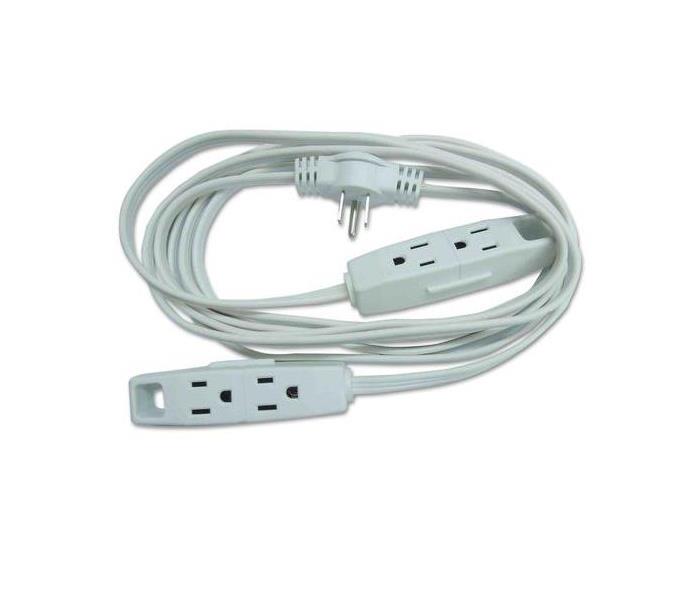Extension Cords Useful or Hazard??
5/13/2020 (Permalink)
The U.S. Consumer Product Safety Commission (CPSC) estimates that each year, about 4,000 injuries associated with electric extension cords are treated in hospital emergency rooms. About half of the injuries involve fractures, lacerations, contusions or sprains from people tripping over extension cords. CPSC also estimates that about 3,300 residential fires originate in extension cords each year, killing 50 people and injuring about 270 others. The most frequent causes of such fires are short circuits, overloading, damage and/or misuse of extension cords. The Do's Don'ts of using an extension cord. Do's
- Use extension cords only when necessary and only on a temporary basis.
- Use extension cords that are the correct size or rating for the equipment in use. The diameter of the extension cord should be the same or greater than the cord of the equipment in use.
- Keep electrical cords away from areas where they may be pinched and areas where they may pose a tripping or fire hazard (e.g., doorways, walkways, under the carpet, etc.).
- Always inspect the cord prior to use to ensure the insulation is not cut or damaged, exposed conducting wires can put you at risk for fire, burns, and electrical shock. Discard damaged cords, cords that become hot, or cords with exposed wiring.
Don'ts
- Do not use extension cords in place of permanent wiring.
- Never unplug an extension cord by pulling on the cord; pull on the plug.
- Do not remove the prongs of an electrical plug. If plug prongs are missing, loose, or bent, replace the entire plug.
- Do not use an adapter or extension cord to defeat a standard grounding device. (e.g., only place three-prong plugs in three-prong outlets; do not alter them to fit in a two-prong outlet.)
- Do not run cords above ceiling tiles or through walls.
Extended exposure to outdoor conditions can cause cords to deteriorate, so whether they're rated for indoors or outdoors, store all extension cords inside when they’re not in use. Regardless of whether or not it's being used, as long as a power extension cord is plugged into an outlet, it's conducting electricity. To avoid potential safety hazards, always remember to unplug extension cords when they're not in use!
SERVPRO of Sooland specializes in the cleanup and restoration of residential and commercial property after a fire, smoke or water damage event. We can handle any size disaster!
Call us at (712) 274-2416






 24/7 Emergency Service
24/7 Emergency Service
